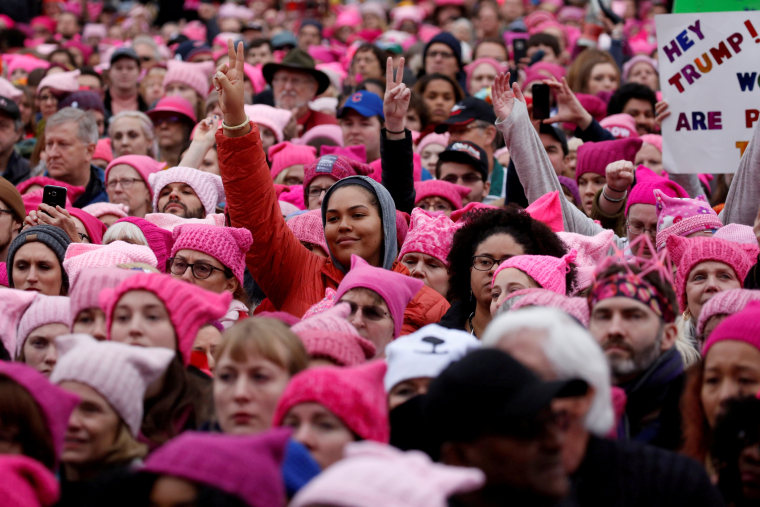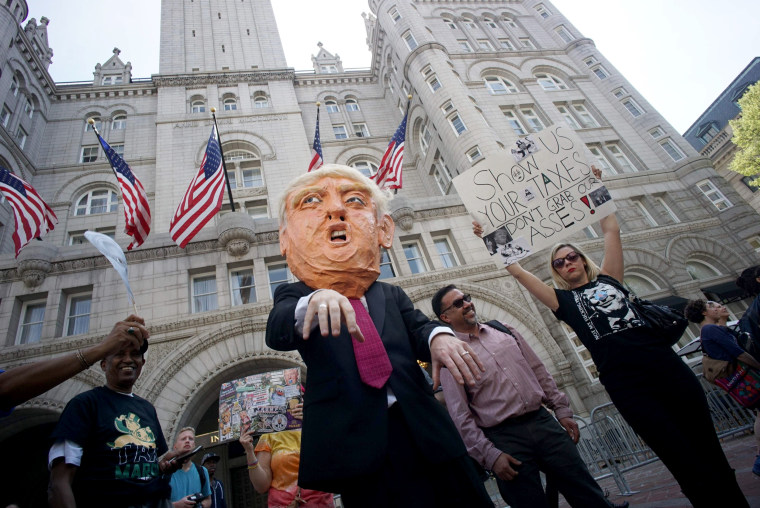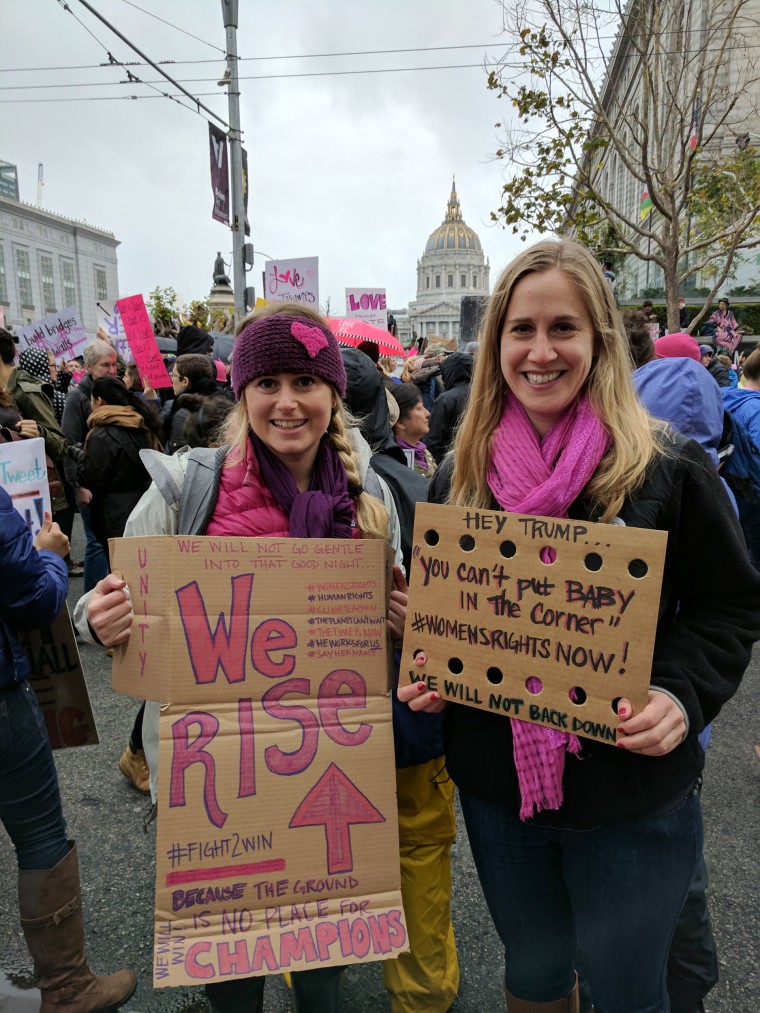Since Donald Trump was elected president, Julia Farber has been to the Tax March in Washington D.C, the March for Science in Detroit, and the Women’s March and Bridge Together March in her hometown of San Francisco.
On Saturday, she planned on attending San Francisco’s People's Climate March.
In all, she's spent dozens of hours protesting or traveling to protests. Not an easy feat given her daytime job as a data marketer. She squeezes in her protests on the weekends, hopping on planes and crisscrossing the country with signs in tow.
“I’m willing to go to just about anything,” Farber said.
And if the social media hashtag #protestisthenewbrunch is to be believed, protesting is currently a widely popular weekend activity.
Since Trump's inauguration, thousands have regularly descended on the nation's capital. For the Women’s March in Washington, more than one million took to the streets, hoping to raise awareness on a multitude of issues that affect women — from equal pay to reproductive rights.
"There has been a groundswell of people taking to the streets since the election," said Jason Husser, director of Elon University’s Elon Poll and a political science professor. "But historically, it isn’t the most popular way for people to try to get what they want.”

For protesters like Farber, Trump's policies are a strong draw. She believes his presidency has made people realize democracy is not something to be taken for granted.
“You have to fight for it, and you have to participate in the process in order to make sure you get the outcomes you want,” said Farber, a registered Democrat who voted for Hillary Clinton in November’s general election,
She's not alone in that sentiment.
“President Trump is simply out of the mainstream on any number of issues,” said Larry Sabato, director of University of Virginia’s Center for Politics. “His personal style is grating and polarizing. His followers love him, but most of the 54 percent who voted against Trump hate him.”
Sabato says the protests around the nation could actually have a cathartic effect for protesters like Farber.
“Individually, they feel powerless as they watch Trump move the nation in a dramatically different direction," Sabato said. "The solidarity in a protest actually helps the participants cope.”
Grassroots organizers are looking to capitalize on the current surge in the numbers of protesters. They see the protesters as full of untapped political potential.

"This is what I do with my Saturdays now," said Kristina Jeffers, a veteran grassroots activist who helped create mycivicworkout.com a group aimed at helping novice activists become engaged in the political process."Friends are there. You can take your kids. It’s fun. The trick will be what's next. Protests aren't enough."
Farber said the protesters are out there doing more than just asking Trump to take action.
“It is about making sure those in power realize that their constituencies are upset,” Farber said. “It’s really up to Congress to hold Trump accountable, so we need to hold Congress accountable.”
Aside from protesting, Farber has founded an organization called, “Where‘s Your Moral Compass?” that raised money to send postcards with “moral compasses” with the words “Courage, Equality, Integrity and Honor,” to all 535 members of Congress, delivered on March 8, the Day Without Women.
She says the compasses are to remind lawmakers to “Think about what they’re doing, and remind them that every decision they make is very important to the American people.”
While negative polls may convince some politicians to change what they are doing, Farber believes that Trump’s tweets about various marches and protests around the nation means he’s paying attention to what she and others are trying to advocate.
“He’s particularly sensitive to imagery that shows people aren’t with him,” Farber said. “Because of that, I think marches are more powerful than if we were dealing with other politicians.”

